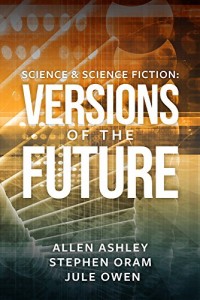In the words of Frederik Pohl, my job as a science fiction author is, “to predict not the automobile but the traffic jam.”
I’m sure we all have mixed feelings about the future of robotics and artificial intelligence. I certainly do and it’s such a broad subject that it’s no surprise emerging technologies and science generates big questions. What human activity we value and what it means to be human might not be new questions, but this could be the moment to assess them again.
Over the past few weeks I’ve been spending even more time than usual thinking and reading about robots and artificial intelligence. I’ve outlined some brief thoughts below, but there’s way too much to put into a short blog post like this and others have written whole books about it, not least Max Tegmark in his book Life 3.0: Being Human in the Age of Artificial Intelligence. Continue reading




